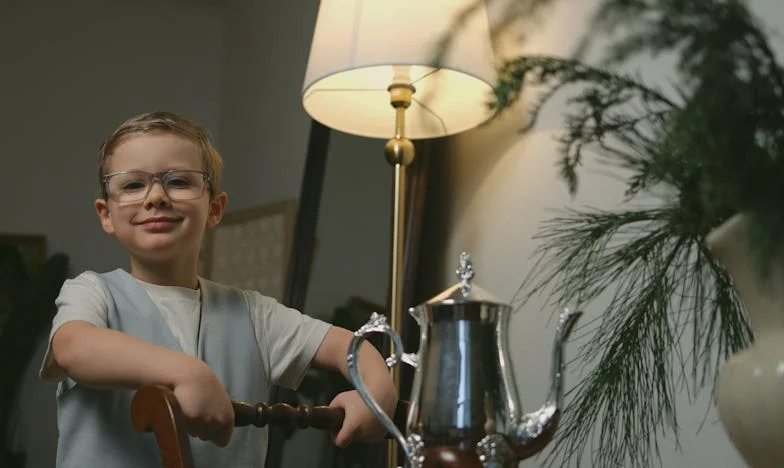After the Funeral: Cast Out by His Children, Alone in My Grief
“You need to leave, Ellen. Dad’s gone, and this house belongs to us now.”
Megan’s words echoed through the hallway, cold and sharp as winter wind. I stood in the foyer, clutching the faded photograph of Tom and me from our last Christmas together. My hands shook. Tom had been gone for barely seventy-two hours, his laughter still lingering in the corners of our home. Now, his children—children I had cared for, cooked for, worried over—looked at me like I was a stranger.
“Please, Megan,” I whispered, searching for kindness in her eyes. “I have nowhere else to go. This is my home, too.”
She glanced at her brother, Josh, who stood silent, jaw clenched. “You’re not family, Ellen. Dad left the house to us. We need you out by the end of the week.”
I felt the air rush from my lungs. My knees nearly buckled. This house—these walls—had held all the memories of my second chance at happiness. After my own bitter divorce, meeting Tom was like spring after a relentless winter. I’d poured myself into making this place warm, lively, a home for all of us. But to Megan and Josh, I was just the woman who married their dad after their mom died. Never quite one of them. Never truly accepted.
That night, I lay awake on the living room couch, suitcases half-packed, memories swirling. I remembered the time Megan had broken her ankle in high school, and I’d stayed up all night icing her leg and making her favorite soup. Or Josh’s graduation, when he’d hugged me and whispered, “Thanks for being here.” Did it mean nothing now?
The next morning, my friend Linda called. “Ellen, I heard about Tom. I’m so sorry. But, uh, I heard from Megan that you’re leaving the house?” Her tone was hesitant, awkward. “If you need anything, let me know. I’m just really busy with work lately.”
It was the same story with everyone. The neighbors who used to wave as I watered the roses now averted their eyes. Tom’s relatives, who once shared Thanksgiving dinners at our table, stopped returning my calls. Even my own sister, living two states away, texted, “Sorry for your loss. Let’s catch up soon.”
I moved into a tiny studio apartment on the edge of town, the kind with peeling paint and a view of the dumpster. The first night, the silence was suffocating. My phone stayed stubbornly quiet. I’d imagined friends would visit, that someone would invite me for coffee, or at least check to see how I was doing. They didn’t. It was as if I’d vanished from their world, a ghost haunting her own life.
The days blurred together—job applications, canned soup, restless nights. Grief pressed on me like a heavy, wet blanket. The loneliness was a living thing, gnawing at me in the dark. I missed Tom’s voice, the way he’d call me “Ellie,” the gentle touch of his hand on mine when the world felt too much. Now, even his children’s faces haunted me, their betrayal burning deeper than I could explain.
One afternoon, as I walked through the park, I saw Megan with her own daughter. The little girl ran ahead, giggling, and Megan’s laugh rang out—soft, maternal, so familiar. For a moment, I ached to run to her, to remind her of the woman who’d once comforted her through heartbreaks and homework assignments. But I watched from a distance, invisible.
Bills piled up. My job search dragged on. Each rejection letter felt like another door slammed shut. Sometimes, I wondered if I was being punished—for loving Tom, for not being his children’s real mother, for daring to hope for happiness again.
One evening, I found myself standing outside our old house. The porch light was on, and inside, laughter spilled from the living room. I could see the silhouettes of Megan, Josh, and their families around the table. For a brief, raw moment, I wanted to pound on the door, to demand justice, to plead for a place in their lives. But I turned away before anyone saw me, tears stinging my cheeks.
It was in those darkest weeks that I found a sliver of strength. I started volunteering at the local animal shelter, where the staff—unconcerned with my past—welcomed me with tired smiles. I walked dogs, cleaned cages, and for a few hours each day, the animals’ unconditional affection eased my pain. One little beagle, Daisy, climbed into my lap and refused to budge. I adopted her on the spot. She became my reason to get up in the morning.
Slowly, painfully, I started to rebuild. I found a part-time job at the library, shelving books and helping seniors with their computers. The work was quiet, but I liked the order of it. Some evenings, I’d meet Linda for tea, and while our conversations were stilted at first, she listened more than before. I missed what I’d lost, but I started to cherish what I still had—a warm cup in my hands, the soft sigh of Daisy at my feet.
Still, the ache of betrayal lingered. I wondered if Megan and Josh ever regretted casting me out, if they remembered the woman who’d tried to love them like her own. Sometimes, I thought of writing them a letter, but the words died in my throat. Maybe, in time, forgiveness would come—for them, for me.
Now, as I sit on my narrow bed, Daisy curled beside me, I ask myself: Is this what starting over looks like? Can you ever truly find home again, after losing everything? I’m not sure. But I get up every day and try.
What would you do if the people you loved most turned their backs on you? Would you fight for your place—or learn to walk away and build something new?
